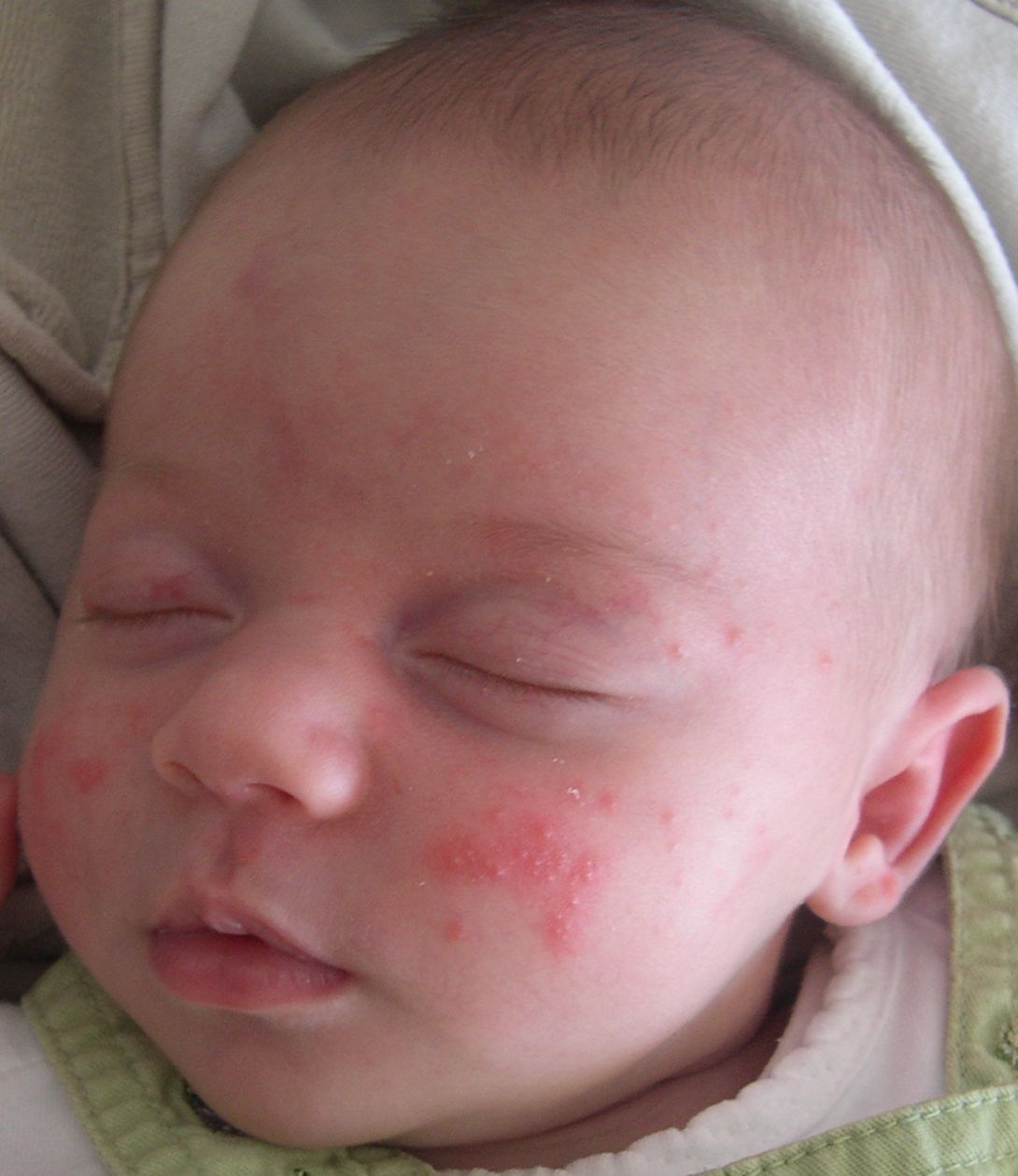0 – 6 weeks
Neonatal acne or baby acne is simply acne that presents at birth, or that arises in the first six weeks of life. It looks just like acne, with small, red breakouts on the face, back, or chest. The cause is yet unknown, though it may have something to do with hormonal imbalances still present post-birth. Also, baby acne may be caused by a reaction to yeast on your baby’s skin.
Neonatal acne is present in over 20% of all newborns. There are no complications associated with this condition. However, if it is present for over three months, please contact your pediatric healthcare provider as your baby may have another skin condition.
Neonatal Acne Treatment
Neonatal acne usually goes away on its own. However, in some cases, your pediatric healthcare provider may prescribe a topical antifungal cream or topical steroid to apply to the affected skin.
Neonatal Acne Tips
- Do not use acne medication.
- Wash your baby’s skin with lukewarm water, never hot.
- Do not scrub acne.
- Don’t use oily or pore-clogging products.
Infantile Acne
2 – 12 months
Alternatively, infantile acne may be more worrisome. Infantile acne is acne that develops after the initial six weeks of life. It could indicate a skin infection, a hormone issue, a product problem, or another cause. And it often lasts longer than neonatal acne, persisting for 6 to 12 months. In some cases, kids have infantile acne up to the teenage years.
Eczema
Eczema, another common skin condition, can cause itchy, red, swollen sections of skin. It usually develops between 6 months and five years of age. Eczema is not contagious and is very common. This skin condition currently affects over 30 million in the US alone.
This skin condition looks more like a rash than neonatal acne does. And it usually impacts kids that are older than six weeks of age. Eczema is more common at the elbows and knees, though it may occur in common acne areas as well.
For questions or comments, please respond to this page or contact us!




